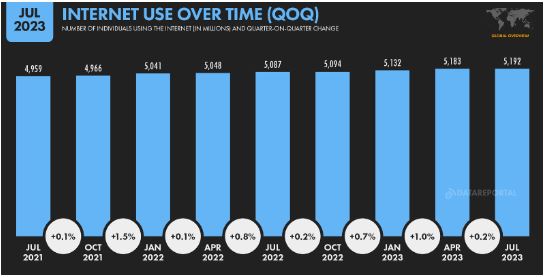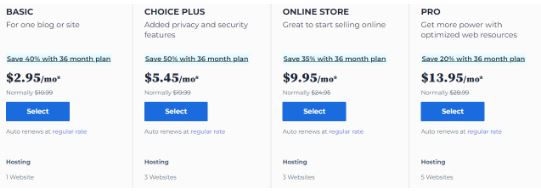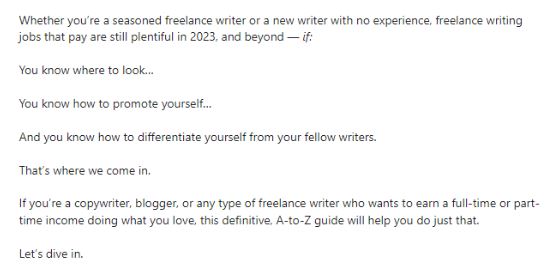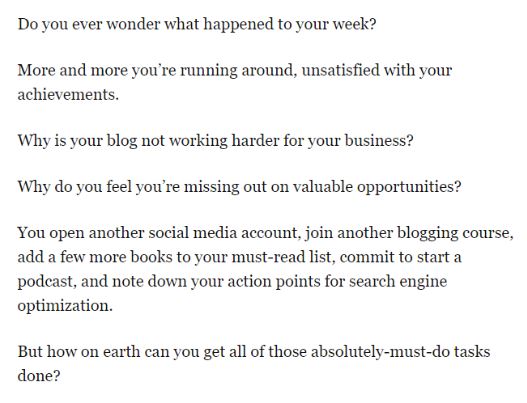So, you want to start a Christian blog.
You feel a calling to spread the Word of the Lord on a much wider scale, reaching people across the world who need to hear His message.
You want to spread hope, encouragement, and love to His people, even those who are far away.
Wonderful.
But the thing is, you’re not a techy person.
You know nothing about setting up a website, choosing a niche within Christianity, writing compelling content, and everything else that comes with blogging.
Don’t worry.
After reading this blog, you’ll have everything you need to know when it comes to Christian blogging.
You’ll know:
- How to identify your target audience
- How to narrow down your niche within the Christian space
- How to build a website from scratch
- How to write with authenticity and passion (and reach more people across the world)
- How to promote your blog
- And so, so much more
Ready?
Let’s dive right into it!
Why Start a Christian Blog at All? (3 Reasons to Encourage You to Get Started)
There are a ton of reasons to start a Christian blog.
Here are three that stand out.
Starting a Christian Blog Helps You Reach More People
There are billions of people out there who need to hear the Word of the Lord.
The good news is, so many of these people are online.
In fact, Data Reportal states that there are 5.1 billion people who use the internet today.
Check it out:
Source: datareportal.com
If your Christian blog can reach even a fraction of those people, you’ll already have done good work in your mission to spread the Word.
Starting a Christian Blog Helps You Build a Community
Since the Covid-19 pandemic, people have become isolated.
Lost.
Alone.
Christians around the world are struggling with the need to share their walk with others.
The good news?
You can help.
Because a Christian blog isn’t only a space where you can post God’s Word.
It can also be a community.
A resting place for the lost, the lonely, and the broken.
Just that thought is a huge reason for you to start a Christian blog.
Starting a Christian Blog Can Help You Generate Passive Income
So, you go and shine a light on people through God’s Word.
Through your Christian blog.
And what if, on the side, you can earn income from it as well?
No, this doesn’t have to make you feel guilty.
After all, you aren’t doing this primarily for the money.
But money is good, when you use it wisely.
Maybe the money isn’t even for you.
Maybe it’s for that brother and sister in need, who you want to help but don’t have enough resources to do so.
Or for that cause you care about.
Or the mission you want to support.
Whatever it is, generating a side income will help you do good.
And you can do that with your blog.
So now, let’s get down to…
How to Start a Christian Blog in 5 Super Easy Steps
You’re not a techy person.
You’ve never created anything online before.
Don’t worry.
Follow these steps and you’ll have your Christian blog up and running in no time.
How to Start a Christian Blog Step #1: Find Your Purpose
Starting a Christian blog doesn’t mean posting random insights for the whole world to see.
It’s not just about sharing your thoughts and feelings, Godly as those might be.
Rather, it’s like a mission.
You have one goal in mind, and everything you do should reflect that goal.
To do that, you’ll need to follow two important steps.
Step 1: Know Your Target Audience
Who are you writing to?
Believers who need encouragement and wisdom from God’s Word?
The lost and the broken who need to hear the message of salvation?
Brothers and sisters around the world who want to learn more about God’s truth?
Before you start writing, you need to know who you’re writing to.
You must know what they need to hear, and how you can help them on their journey.
So stop right now, if you’re already doing the tech stuff on your blog.
Take a moment to sit still and imagine the person you’re going to write to.
Take a notebook and a pen (or open your word processor), and create a persona of your target audience.
It can look something like this:
Source: ipinimg.com
Of course, you don’t have to stick strictly to your persona.
But just knowing who you’re trying to reach and why will greatly help you shape your blog’s content.
Step #2: Choose a Niche
This is closely tied in with the previous step.
After narrowing down who you’re talking to, it’s time to get really specific.
Here are a few niche ideas you might decide to go into:
- A Christian blog centered on supporting people with health issues
- A Christian blog giving relationship advice to dating or married couples
- An evangelical Christian blog that reaches out to the lost across the world
- A Christian blog centered on money and living daily life
- A Christian blog for entrepreneurs and people who want to start their own businesses
- A Christian blog that gives parenting advice
“But wait,” you might say. “Won’t picking a single niche cancel out the chance to reach out to more people with different needs?”
Sure.
But think of it this way.
Advice for everyone is generic advice.
If a friend of yours needed relationship advice, would parenting or financial advice help them?
Of course not.
And in a way, blogging is like helping a friend.
You know who they are, what their struggles and needs are, and exactly what to say to help them.
So go on and tell them what they want and need to hear, nothing more and nothing less.
How to Start a Christian Blog Step #2: Set Up Your Platform
Sure, you can write and publish posts on platforms like Medium.
Or go to social media platforms like Facebook.
But in the end, setting up your own blog is the best thing to do.
That way, you don’t have to rely on a platform someone else owns.
And don’t worry.
Setting up a blog from scratch isn’t rocket science.
All you have to do is follow these three steps.
Step #1: Choose Your Blogging Platform
To have your own blog, the first thing you’ll need is a blogging platform.
This is your shortcut to owning a professional-looking, SEO-friendly blog (without having to learn how to write a line of code).
Here’s a list of blogging platforms you might like:
Each one of these platforms is beginner-friendly, and doesn’t require you to know how to write even a single line of code.
But want to know my honest opinion?
WordPress stands out amongst all of them.
In fact, WordPress is so impressive, 43% of all websites use it.
Check this out:
Source: colorlib.com
Impressive, huh?
Sure, you can go ahead and try any or all of the blogging platforms I listed.
But honestly, if you want a shortcut, just go with WordPress.
I’m sure you’ll love it.
Step #2: Select Your Domain and Hosting
Next step?
Domain and hosting.
These are like your website’s home online.
If the web is a giant house, getting your domain and hosting is like buying a room within this house.
Cool?
Yeah, there are a ton of hosting providers that offer both hosting and domains.
Some of these are:
- BlueHost
- Host Gator
- GoDaddy
- DreamHost
- Hostinger
Again, wanna skip the information overload and know what I use for all my sites?
I use BlueHost.
So far, it’s been reliable, affordable, and good enough for everything I need.
Even if you don’t have a huge budget, you can get hosting for as little as $2.95 a month.
Source: bluehost.com
BlueHost offers not only hosting, but also domains.
Simply choose the plan you want and follow the steps to buying and setting up both.
Want a step-by-step guide on building your own website from scratch? Read our complete guide here.
Step #3: Choose Your Site’s Theme and Layout
Just because the most important thing on your blog will be God’s Word…
…doesn’t mean you won’t have to design your site to make it look beautiful.
You want your readers to have an enjoyable, user-friendly experience as they navigate it.
Don’t worry, though.
When you use a platform like WordPress, it’s super easy to pick themes and layouts.
Basically, it’s like filling in the blanks.
But here are a few considerations to make before you jump into a theme and layout:
- Select colors that make your audience feel what you want them to feel. (I know, it sounds shallow. But you’ll be surprised at how color plays a role in your readers’ subconscious. Warm colors can make them feel safe, cold ones can make them feel isolated.)
- Pick a font and stick to it. Don’t be fancy on one page, hard-to-read on another, and plain on yet another. Consistency throughout your site will eliminate confusion for readers.
- Choose a good theme. On WordPress, you’ll be able to select from a number of themes and layouts. Choose one that’s easy to flow through, so your readers don’t feel stuck and confused as they navigate your site. To make sure, visit other websites and study them. Do you like the flow? Is it easy to navigate? Does it make you feel relaxed or frustrated? Then, choose your favorite and pick a theme that allows you to do the same on your site.
These are only a few of the many small considerations you’ll need to make when designing your site.
But don’t worry.
The more you work on it, the more you’ll feel what it has to be.
Follow your gut and intuition, know what your readers will like and dislike, and in no time, you’ll have the perfect blog up and ready for the world.
How to Start a Christian Blog Step #3: Write Compelling Content for Your Blog
Now your blog’s ready.
What’s next?
What kind of content should you write for it?
Well, you already determined your niche.
Now it’s time to dive into how to write content your audience will feel magnetized to.
Step #1: Write Content that Speaks to Their Needs
Sure, you can write about your experiences and stories.
You can dissect Scriptures and tell your readers what you believe in.
But in the end, if what you write won’t do them any good and won’t speak to their needs…
…you’d be better off not writing at all.
So before you begin writing each blog, ask yourself, “What will my audience achieve when they’ve finished reading this?”
Let me show you an example.
Here’s the introduction of a blog by Smart Blogger.
Source: smartblogger.com
As you can see, this blog has one mission.
It’s to help freelancers find a full or part-time income.
It’s not going to be full of fluff, stories, and things they don’t need.
It’s a guide that’ll help them get from Point A (not knowing how to find a freelancing job)…
…to Point B (knowing all the steps they need to get there).
Every time you write, keep this in mind.
Step #2: Write Content They’ll Love Consuming
The truth is, writing for the online world is WAY different from writing a book.
You don’t want your audience to fall asleep with long passages and paragraphs.
Nothing like this:
Source: wikipedia.org
Instead, you want them to flow swiftly and easily through your content.
So follow these guidelines:
- Create a lot of white space around your content.
- Don’t use words you wouldn’t use in normal conversations (no heavy jargon).
- Don’t pack your paragraphs with a ton of sentences (1-3 sentences is a good rule of thumb to stick to).
- Punctuate your content with images to give your audience a break from reading.
- Be conversational (imagine yourself standing in front of your readers and write the way you’d speak to them).
Check out this example of writing that’s super fluid and easy on the eyes.
Source: enchantingmarketing.com
Tell me.
Would you rather read this one, or the Wikipedia page above?
Your readers will answer the same.
Step #3: Write Content that’s Concise
Say what you need to say.
And then stop.
Don’t run on and on telling stories your audience doesn’t need to hear.
Of course, there’s a place for witty anecdotes that’ll make your readers feel connected to you.
But there’s no need to write a novel-length blog.
It’s all about balance.
Say enough so that they’re satisfied.
And then stop.
(A good rule of thumb is to keep your blogs between 1,500-2,000 words. That seems to be the sweet spot with authority blogging.)
How to Start a Christian Blog Step #4: Promote Your Blog
Running a blog isn’t all about setting it up, writing, and then leaving things be.
You also need to promote it.
This will help you reach more people across the world.
So, how do you promote your Christian blog?
Here are some ways you can do it:
- Go to social media and share snippets of your blogs there (with links to read the whole blog).
- Ask your church members to share your blog.
- Go to Christian communities online (forums, pages, and groups) and post links to your blog there.
- Optimize your blog posts through SEO.
There are a ton of other ways you can share your blog and make sure it reaches more people worldwide.
But for now, these four I’ve mentioned will help you reach an audience that’s wider than you might think.
How to Start a Christian Blog Step #5: Monetize Your Blog
Like I said before, there’s no reason for you to feel guilty about making money from your blog.
Money is always useful, and there are brothers and sisters out there who might desperately need it.
So, how do you monetize your Christian blog?
One great way is through affiliate marketing.
This means promoting products and services you love to your audience, and getting commissions each time they buy.
And know what?
You’ll be surprised at how easy it is to actually start it.
In fact, we have a FREE training course you can access right now.
In it, you’ll be guided on exactly how to start a blog that makes money (from scratch).
Go here to access the FREE course.
Starting a Christian Blog: It’s for Anyone Who’s Willing to Try
Think starting a Christian blog is only for the techy and knowledgeable?
Think again.
In the modern world of the internet, building a blog is easier than it’s ever been.
All you need is to set aside a few hours of your time.
Then, follow the steps I’ve outlined in this blog.
In no time at all, you’ll have a beautiful site with compelling, helpful content your audience will love.
You’ll reach the lost and lonely across the world.
You’ll fulfill more of your mission on earth.
You’ll drop words of comfort on brothers and sisters in faraway places.
Altogether, it’s a worthwhile task you won’t regret undertaking.
Images: All screenshots taken by the author, August 2023.









